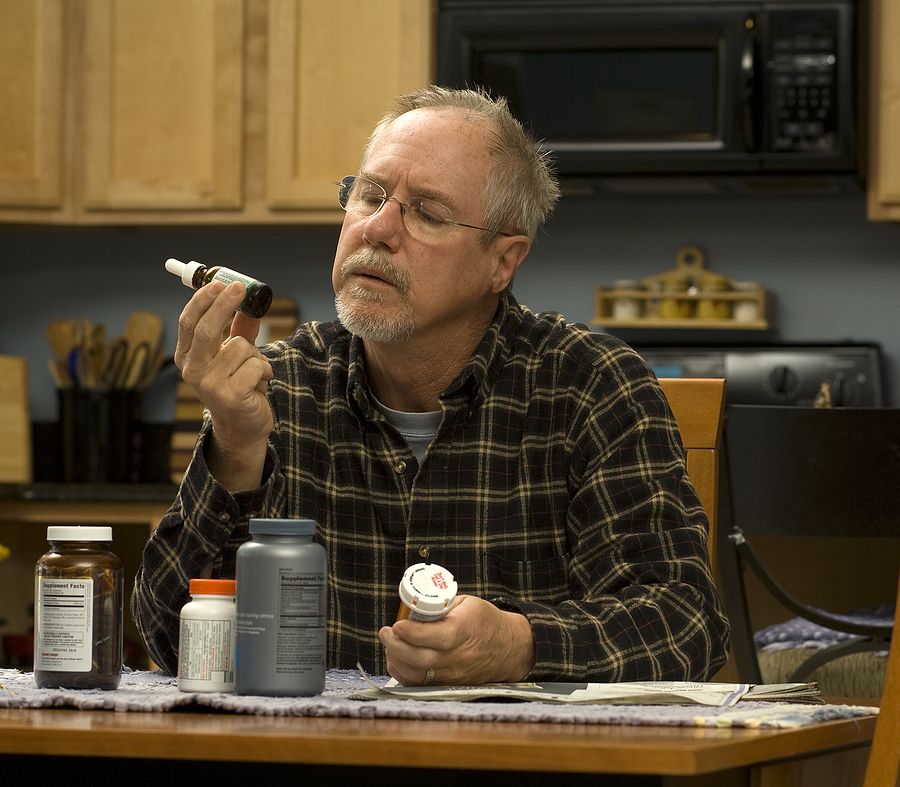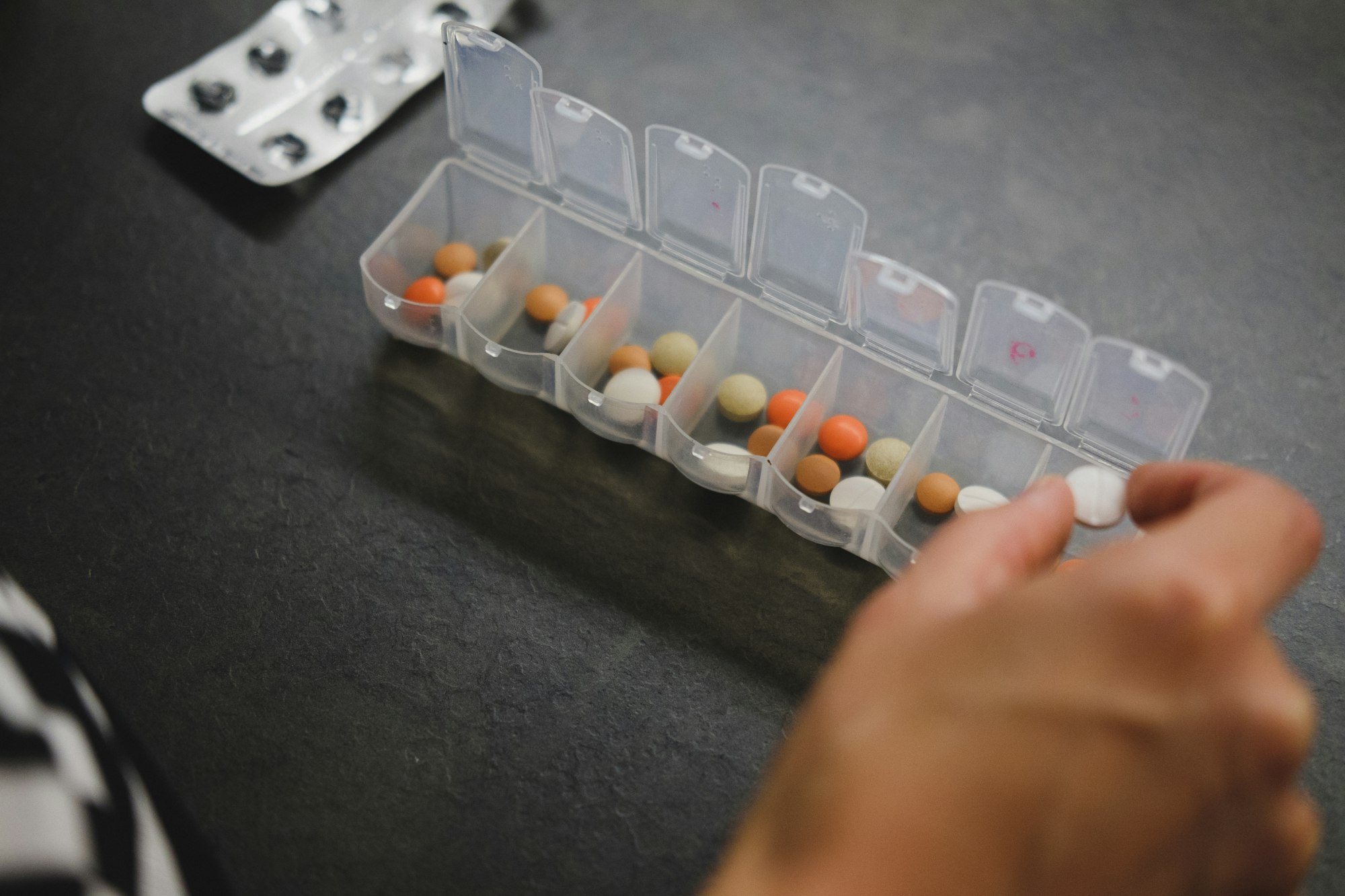Medication Safety Tips for Seniors: Ensuring Proper Usage and Minimizing Risks
Do you have elderly loved ones that are living with chronic conditions? Find out how to keep them safe from potential medication interactions.

As seniors age, they often find themselves taking multiple prescribed medications, over-the-counter drugs, nutritional supplements, and alternative remedies. However, this can increase the risk of adverse interactions and medication misuse. Various factors, such as changes in the body's functioning and the number of medications being taken, make seniors more vulnerable to unpleasant reactions and potential toxicity. In order to promote medication safety for seniors, it is crucial to understand potential risks and implement strategies to ensure proper usage.

Factors Affecting Medication Safety:
1.Age-related changes in the body: Aging can lead to changes in stomach pH, slower absorption of medications, and delayed stomach emptying, impacting how drugs are processed and how individuals respond to them.
2.Medication interactions: Medications, food, and drinks can interact with one another, including over-the-counter drugs, supplements, and alternative remedies. Some combinations can be dangerous or even lethal for seniors.
3.Side effects and impairments: Certain medications may affect balance, concentration, cause fatigue, or impact speech, making seniors more vulnerable to accidents or errors.
4.Increased medication use: Seniors often take an average of 7-8 medications daily, and their prescription can change up to 12 times a year due to chronic illnesses and multiple health conditions. Overprescribing by healthcare professionals also contributes to the number of medications taken.
Importance of Medication Compliance:
1.Non-compliance risks: Failure to comply with medication regimens can result in preventable hospital admissions, accounting for 20-30% of hospitalizations among individuals over 65. Some severe adverse reactions to medication can even lead to death.
2.Nursing home admissions: Approximately 200,000 nursing home admissions per year are due to seniors living alone and struggling to maintain medication compliance.
3.Preventable side effects: The aging population experiences over 500,000 preventable medication side effects annually, with 20% attributed to human error. Adverse reactions are seven times more likely in individuals over 65, and many go unreported or unnoticed.
Factors Contributing to Medication Non-compliance:
1.Multiple medical conditions: Seniors with a history of multiple health conditions may struggle to manage their medications effectively.
2.Lack of a responsible physician: When seniors see multiple healthcare professionals, each prescribing medications, there may be a lack of overall responsibility for medication management.
3.Multiple medications: Taking numerous medications can be overwhelming and increase the likelihood of errors or non-compliance.
4.Financial barriers: Seniors on fixed incomes may struggle to afford prescribed medications, leading to irregular usage.
5.Changes in medication dosage or strength:Adjustments to medication dosages can cause confusion or errors, especially for seniors already on a medication regimen.
6.Cognitive or physical impairments: Declining cognitive or physical abilities can hinder seniors' ability to manage medications independently.
7.Living alone: Seniors living alone may lack support or reminders for medication compliance.
Improving Medication Safety for Seniors:
1.Assess financial barriers: Caregivers should identify if financial constraints are impacting medication compliance and seek assistance options if needed.
2.Medication reconciliation: Consolidate medication lists and involve a primary healthcare provider to coordinate prescriptions and monitor interactions.
3.Caregiver involvement: Engage caregivers or family members to assist with medication management, organization, and reminders.
4.Medication education: Provide seniors with clear instructions on proper usage, including the right dose, timing, and potential interactions.
5.Use technology aids: Utilize medication organizers, reminder apps, and automatic pill dispensers to support adherence.
6.Regular medication reviews: Schedule regular check-ups with healthcare providers to assess the ongoing need for medications and potential interactions.
7.Open communication: Encourage seniors to discuss concerns or side effects with healthcare providers openly, without embarrassment or hesitation.
8.Utilize available resources: Explore resources like the Medicare Prescriber Check-Up and the Empowered Patient Coalition for medication information, safety reports, and reporting adverse events.
Conclusion:
Ensuring medication safety for seniors requires understanding the unique challenges they face and implementing strategies to mitigate risks. By promoting medication compliance, caregiver involvement, and open communication, seniors can reduce the likelihood of adverse reactions, preventable hospitalizations, and improve their overall well-being.
Have Medicare? Inside the Governments Drug Data –Here is important information on your medications. Did you know that Medicare does not monitor medication prescribers. This is putting seniors are risk. Use this Prescriber Check up to see how your medical provider stacks up against their peers.
Concerned about Patient Safety check out this series
Nursing Home Inspect– Use this tool to compare nursing homes in a state based on the deficiencies cited by regulators and the penalties imposed in the past three years. You can also search over 60,000 nursing home inspection reports to look for trends or patterns.
Looking for Assisted Living? read this to learn about the pros and cons about assisted living
Report Abuse in Assisted LIving
The Empowered Patient Coalition
The Empowered Patient Coalition is dedicated to providing an unprecedented level of information, resources and educational support to the public. The Coalition is committed to promoting a culture of transparency, meaningful interaction and active participation that will allow patients and their advocates to assume a greater role in improving the safety and the quality of their health care.
Report a Medication of Medical Product
Here’s a link to find out if your health care provider is receiving money from drug companies– IT DOES AFFECT WHAT THEY PRESCRIBE
